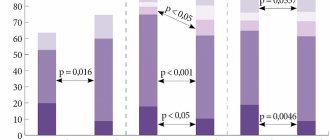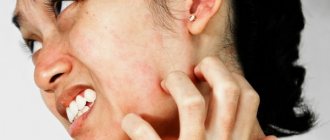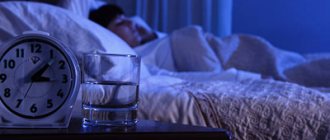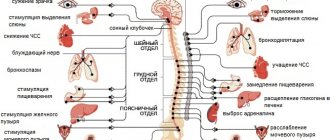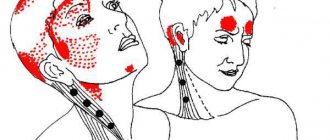Prolonged sleep is not at all good for health. A constant desire to sleep can be associated with serious illnesses. For example, some mental disorders and even deadly diseases can be accompanied by constant drowsiness. However, in most cases, a long night's rest is due to an incorrect daily routine or stress, which is dealt with with the help of additional sleep. So, why does a person sleep a lot? And should you sound the alarm if the dream seems endless to you?
The article is for informational purposes only. If you have health problems, you should consult your doctor in person. Self-medication is unacceptable!
Definition
Most adults require about 7-9 hours of sleep. However, there are also individual variations. For example, some may only need 6 hours of sleep, while others may need up to 10 hours.
Long naps usually do not affect the health of people who need that extra hour or two of sleep. Likewise, this does not apply to the extended sleep that is needed when recovering from illness, extreme exercise, or travel-related issues such as jet lag.
Long-term sleep affects the health of people who regularly sleep more than their body needs, for example, for 11-13 hours.
How to determine whether correction of sleep duration is needed
The normal sleep duration of 7-8 hours, on the one hand, should be taken as the basis for developing your own daily routine. On the other hand, these numbers are not a general rule, because each organism is individual. Some people may need 9-10 hours a day to regain their strength. It should be remembered that the described sleep duration norms apply only to adults, because for children these values are much higher: from 20 to 12 hours, depending on age.
To understand whether sleep lasting more than 8 hours is physiologically normal, you need to undergo examinations. First of all, you need to independently analyze whether you have taken sedatives or other medications, the side effects of which include drowsiness. Stopping taking these medications should eliminate the constant desire to sleep.
After a simple self-analysis, you can seek help from doctors. They will monitor your sleep, study your blood composition and heart function. If the causes of drowsiness are found, eliminating them will restore good spirits after 7 hours of sleep. The result of the examination may be a conclusion confirming the need to sleep longer than 7-8 hours, due to the physiological characteristics of the body.
Long sleep - reasons
While occasional long naps are normal, regular long naps may indicate an underlying health problem.
There are several links between health conditions and long sleep periods.
Disturbed sleep cycle
Numerous problems can cause sleep cycle disturbances. Every night the body goes through four or five different cycles. Cycles are important to feel refreshed the next day. Interruptions in the sleep cycle can lead to drowsiness in some people. Such interruptions may occur due to:
- loud noise
- bright lights
- consuming caffeine before bed
- pain
- restless legs syndrome
- bruxism, or teeth grinding
Other conditions can also cause disturbances in the sleep cycle.
Narcolepsy
Narcolepsy is a sleep-related condition that can cause severe sleepiness throughout the day. The condition does not go away after a full night's sleep or with a nap during the day. Narcolepsy may also cause other sleep problems, in addition to physical and cognitive symptoms.
Hypothyroidism
Hypothyroidism
may also affect sleep patterns in some cases. An underactive thyroid gland can cause drowsiness even after a full night's rest. This may lead to daytime sleepiness. Other common symptoms of hypothyroidism include feeling cold, muscle weakness, and unexplained weight gain.
Obstructive sleep apnea
Obstructive sleep apnea can also cause sleepiness. With obstructive sleep apnea, a person stops breathing for a short period of time. This usually happens several times a night and each time disrupts the sleep cycle. This can lead to excessive daytime sleepiness and a need for more sleep to feel rested.
Other symptoms of obstructive sleep apnea include:
- difficulty concentrating
- memory problems
- headaches or dry mouth when waking up
- frequently waking up to urinate
Depression
The relationship between sleep problems and depression is bidirectional. As noted in one study, sleep disturbance is both a risk factor and a symptom of depression. Other research hypothesizes that many forms of sleep disorder are a risk factor for depression, including narcolepsy, circadian rhythm disorders, and insomnia.
Although it usually manifests as insomnia or difficulty falling asleep or staying asleep, hypersomnia can occur in some cases of depression. This may be due to a disrupted sleep cycle (leading to long periods of sleep to compensate for sleep loss) or problems such as inflammation. However, the exact reason remains unclear.
Use of drugs
Some medications can also cause excessive drowsiness as a side effect, which can lead to prolonged sleep. If excessive sleepiness due to medications is difficult to treat, you should talk to your doctor about adjusting your dose or switching to a new medication.
Idiopathic hypersomnia
In some cases, even after making a full diagnosis, doctors may not know the underlying cause of prolonged sleep. This is known as idiopathic hypersomnia. A person with this condition may simply have excessive sleepiness and sleep without any specific reason.
What can influence the need for long sleep
When 8 hours is not enough to get enough sleep and recharge your batteries, you need to pay attention to certain signals from the body. So it can signal:
- overwork;
- dysfunction of the thyroid gland;
- heart diseases;
- course of an infectious disease;
- malnutrition or overeating;
- neurological abnormalities;
- constant stress or depression;
- night apnea.
In addition to disturbances in the functioning of the body, a constant state of lack of sleep can provoke the use of certain medications, especially sedatives.
Is it dangerous?
While occasional long naps are not necessarily harmful to health, complications from regular long naps can put other conditions at risk.
Researchers found that people who slept too much or too little were significantly more likely to be overweight or obese. The review found that there is also a link between regular long-term sleep and a range of complications, including high blood sugar and risk factors for cardiovascular disease. Risks vary by gender and individual factors.
How is diagnosis carried out?
Daytime sleepiness is a rather subjective concept; each person perceives and evaluates this sensation in his own way. As a result, many patients sincerely believe that they do not have any drowsiness and will give a negative answer to a direct question about its presence.
A sleep specialist can accurately assess and quantify the degree of sleepiness using the so-called multiple sleep latency test. This is a standardized diagnostic procedure in which the patient is given several opportunities to fall asleep during the day, and the onset, duration, end and structure of such sleep are assessed using polysomnography. However, this test is complex and expensive, and the main indication for its performance is the suspicion that the patient has narcolepsy.
The easiest way is to ask the patient to assess the likelihood of falling asleep in relation to various everyday life situations. It is on this principle that the proposed Epworth Daytime Sleepiness Scale is built. Due to its simplicity and reliability of the results obtained, this questionnaire has become widely used as one of the main methods of non-instrumental identification and assessment of the severity of excessive daytime sleepiness.
Epworth Daytime Sleepiness Questionnaire
The patient is asked to evaluate the possibility of dozing off or even falling asleep in various situations and assess the probability of this in points, where 0 means never, 1 means a small probability, 2 means a moderate probability and, finally, 3 means a high probability of falling asleep:
- Reading while sitting
- Watching TV
- Passive participation in social events (sitting in the theater, at a meeting, etc.)
- As a passenger in a car (if the trip lasts at least an hour)
- If you lie down to rest after lunch in the absence of other things to do
- Sitting or talking to someone
- Sitting quietly after eating (without drinking alcohol)
- Driving a car stopped for a few minutes in a traffic jam or during a short break at work
If the sum of the points obtained as a result of testing is more than 10 and you snore loudly during your sleep, then you almost certainly have a fairly severe form of sleep apnea syndrome. But a lower number of “drowsy” points is often a sign of breathing disorder during sleep. Already at a level of sleepiness of more than 5 points, we recommend undergoing an examination to exclude the presence of sleep apnea.
However, it must be remembered that any, even the most detailed, questionnaire can only be used for a preliminary assessment of existing symptoms, and a questionnaire alone, of course, will not be enough to make a final diagnosis. The results obtained are assessed by a sleep specialist, and only after additional examination will the doctor be able to make an accurate diagnosis explaining the cause of your drowsiness.
How to prevent long sleep
Sleep can fuel habits that can cause long periods of sleep. For this reason, it is important to break the cycle and return to a normal sleep pattern. How to do it:
Set an alarm
Setting an alarm for the same time every day helps the body regulate its habits and return to its natural rhythms.
Don't hit the snooze button
Getting out of bed completely will help wake up your body and prevent you from falling back asleep.
Avoid daytime naps
Some people who sleep long hours at night may benefit from avoiding naps during the day. Napping can disrupt the body's sleep patterns and promote prolonged sleep. On the other hand, some may find that a short nap of just 10-20 minutes helps them feel rested.
Avoid light before bed
Bright, short-wavelength light from electronic devices stimulates the brain, causing you to stay on your feet longer than necessary.
For people whose bodies are sensitive to this light, it is best to avoid using electronic devices and all light sources before bed.
Keep a sleep diary
Your doctor may ask you to keep a sleep diary, in which you will need to detail your usual sleep habits and daily routine in a journal, including when you sleep and when you are awake.
Keeping a sleep diary can provide your doctor with the information needed to diagnose any underlying health problems.
Drowsiness as a diagnosis
If a person constantly wants to increase the duration of daily sleep, this may indicate that he has idiopathic hypersomnia. This is a condition in which the nervous system does not work properly, causing a person to feel constantly tired, even after a night's sleep. Hypotension is often simultaneously observed, accompanied by dizziness and migraines.
Experiencing constant drowsiness, a person cannot concentrate on an important task, he fails to perform the assigned tasks efficiently. Idiopathic hypersomnia makes a person an introvert, because in a state of constant fatigue one does not want to make new acquaintances, participate in meetings with friends, go on visits and actively spend time in company.
Chronic lack of sleep also has more dangerous consequences. This is especially true for drivers. When driving, you must always be ready to make important decisions in a matter of seconds. Idiopathic hypersomnia will not allow this to be done, because this condition greatly inhibits the reaction, which often causes fatal accidents.
Vegetovascular (neurocirculatory) dystonia
Vegetative-vascular dystonia is a dysfunction of the vascular system associated with a disorder of the endocrine system (more precisely, with a change in the mechanism of neuroregulation). The disease is so common that many people do not perceive it as a serious illness. The high-risk group includes young and middle-aged women. In addition to drowsiness and headache, signs of VSD are:
- cardiopalmus,
- rapid onset of fatigue from minor physical exertion;
- feeling of lack of air (a person often sighs);
- periodic dizziness;
- pain in the heart area;
- cold extremities (especially hands and feet);
- tendency to sweat.
A large role in the development of the disease is played by hereditary predisposition, bad habits (smoking in the first place), a sedentary lifestyle, inability to withstand stressful situations, and emotional instability. VSD can develop against the background of cerebrovascular accident.
In most cases, symptoms of VSD disappear with lifestyle changes. Proper nutrition, physical exercise, adherence to a work-rest regime, and regular hardening lead to a significant improvement in well-being: drowsiness and headaches disappear, mood improves and performance increases.
In advanced cases, medications are prescribed to improve the functioning of the autonomic nervous system. The problem cannot be solved on its own; medical assistance is required.
Reasons why pregnant women constantly want to sleep
Pregnancy is a special period in a woman’s life during which she experiences not only unusual emotions, but also significant physiological changes. One of them is the desire to sleep longer in the morning. This is especially true during the first three months of pregnancy. Why does drowsiness occur? Is it good for pregnant women to sleep a lot?
USEFUL INFORMATION: The dangers of lack of sleep: what will happen if you sleep little
There are three main causes of physiological hyperesomnia in pregnant women:
- The body goes into energy saving mode. In the first three months of pregnancy, the body experiences a global reorganization, the purpose of which is to provide the necessary conditions for the formation and growth of the fetus. This process takes the lion's share of a woman's energy resources. Therefore, in order to save energy, the nervous system “invites” the expectant mother to sleep longer.
- Hormonal levels change. This process is characterized by a decrease in the number of female hormones and an increase in progesterone, which helps maintain pregnancy.
- Frequent interruption of sleep at night due to toxicosis, trips to the toilet, pain in the legs, etc.
The conclusion from all of the above is the following: sleeping a lot during pregnancy is not only useful, but also necessary.
Why does a person sleep a lot and not get enough sleep?
Sleeping for 12 hours is a sign of a serious condition of the central nervous system; in this case, a person sleeps for a long time and does not get enough sleep. There are several provoking factors:
- Violation of the regime. You should go to bed no later than 23.00. With the onset of darkness, the hormone melatonin begins to be produced, which regulates sleep and wakefulness. Its active production occurs until 24.00. If this time period is missed, hormonal imbalance begins.
- Nervous. A condition where people sleep for more than 12 hours may be associated with an unfavorable psycho-emotional environment. Severe stress initially causes insomnia, and then drowsiness. In some cases, you just need to get a good night's sleep, since nerve cells are restored only during dreams; in others, prolonged rest only worsens the psychological state. To get rid of this, special treatment is required.
- Gastrointestinal diseases . Sleep problems are often associated with diseases of the gastrointestinal tract. When digestion is disrupted, dreams become anxious and nightmares occur. Problems with the gastrointestinal tract are confirmed by bad breath, coating on the tongue, sour or bitter taste, drowsiness, lethargy. A person does not get enough sleep, even if he sleeps longer than usual.
- Dust mites. Most of them accumulate in feather pillows, mattresses, and blankets. If they are not washed or dry cleaned for a long time, resting in such a bed becomes hazardous to health. After a long sleep in the morning, you feel a headache, fatigue, and symptoms of an allergic reaction arise - itching on the skin, watery eyes, coughing, sneezing, rhinitis.
The reasons why you can’t get a good night’s sleep are divided into physiological and pathological. In the first case, you just need to sleep off, in the second, start therapy.
Treatment
If warning signs that are systemic in nature appear, including drowsiness and headaches, make an appointment with a specialist at the MedCom clinic in Ryazan. Experienced doctors will quickly and accurately diagnose and prescribe the correct treatment on an outpatient or inpatient basis. It has everything you need to undergo diagnostics and receive effective medical care, without queues or a bureaucratic approach. If you have any questions, please contact us by phone or through the online form.
